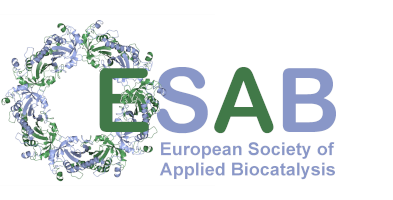Development of a promiscuous thioesterase domain for bioengineering of novel polyketides
Abstract
Trans-acyltransferase polyketide synthases (trans-AT PKSs) are multimodular assembly line enzymes that assemble malonyl-CoA derived acetate units into a remarkably diverse set of chemical scaffolds. Being able to fully harness their biocatalytic capability would revolutionise our capacity to biochemically synthesise complex small molecules, but work to fully understand the molecular interactions governing their function is still needed. The talk will discuss progress towards understanding a novel chain release mechanism in the trans-AT PKS responsible for biosynthesis of the antibiotic gladiolin. This PKS contains an extra ketosynthase (KS) domain in its final module which, despite having the ability to catalyse chain extension in vitro, does not have this function in vivo. Furthermore, biochemical assays showed the terminal thioesterase (TE) domain very efficiently hydrolyzes malonyl thioesters from its upstream ACP domain. Thus, the TE domain removes the malonyl thioesters from the ACP domain before chain elongation can occur. Through a combination of X-ray crystallography, sequences analysis, site-directed mutagenesis and molecular dynamics simulations, we found a conserved residue in the substrate pocket involved in the substrate specificity of the TE domain and show this is a conserved mechanism for chain release in trans-AT PKSs.
About the Speaker(s)
 Lona Alkhalaf earned her PhD at the University of Warwick under the supervision of Prof. Greg Challis, working on a BBSRC and Syngenta-funded project focused on the biosynthesis of thaxtomin A, employing a combination of chemical synthesis, recombinant protein overproduction and purification, enzyme assay development and protein crystallography (in collaboration with Prof Vilmos Fulop). In 2014 she undertook postdoctoral research in the group of Prof. Katie Ryan at the University of British Columbia, where she worked on the enzymology of natural product biosynthesis and structural characterisation of t-RNA synthetases by X-ray crystallography. She was appointed as a Senior Research Fellow at the University of Warwick in 2016, where she oversees the chemical biology research facility (CBRF) and the chemical biology protein crystallisation facility. As well as solving the structure of various biosynthetic enzymes, including dehydratase, enoyl reductase, and thioesterase domains from trans-AT polyketide synthases, several flavin-dependent oxidoreductases, a PLP-dependent transaminase, and a unique phosphamutase she also works on a wide range of projects on natural product biosynthesis and mechanism of action, and enzyme mechanism and engineering. She transitioned to an Assistant Professorship in January 2022.
Lona Alkhalaf earned her PhD at the University of Warwick under the supervision of Prof. Greg Challis, working on a BBSRC and Syngenta-funded project focused on the biosynthesis of thaxtomin A, employing a combination of chemical synthesis, recombinant protein overproduction and purification, enzyme assay development and protein crystallography (in collaboration with Prof Vilmos Fulop). In 2014 she undertook postdoctoral research in the group of Prof. Katie Ryan at the University of British Columbia, where she worked on the enzymology of natural product biosynthesis and structural characterisation of t-RNA synthetases by X-ray crystallography. She was appointed as a Senior Research Fellow at the University of Warwick in 2016, where she oversees the chemical biology research facility (CBRF) and the chemical biology protein crystallisation facility. As well as solving the structure of various biosynthetic enzymes, including dehydratase, enoyl reductase, and thioesterase domains from trans-AT polyketide synthases, several flavin-dependent oxidoreductases, a PLP-dependent transaminase, and a unique phosphamutase she also works on a wide range of projects on natural product biosynthesis and mechanism of action, and enzyme mechanism and engineering. She transitioned to an Assistant Professorship in January 2022.
